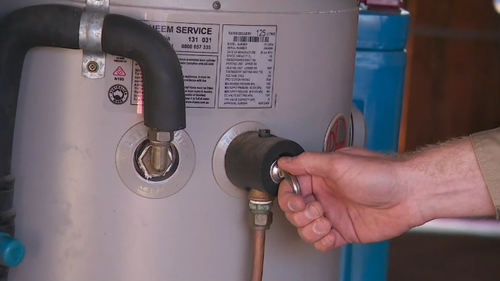Share this @internewscast.com
The Victorian government has updated its approach to phasing out gas appliances in homes and businesses, narrowing its focus to only include gas hot water systems.
Starting from March 1, 2027, when gas hot water systems in Victorian homes and businesses need replacement, they will be swapped with electric options, such as heat pumps.

However, previous plans to entirely replace broken gas home appliances with electric versions have been scrapped. Repairs will continue to be allowed until these appliances are beyond repair. This initiative is part of the government’s effort to allocate the limited gas supply to industrial use while reducing energy costs.
The government is hoping to avoid a gas shortfall projected by the Australian Energy Market Operator (AEMO), which forecast a shortage of the energy resource in Australia south-eastern states by 2029.
“We know we need to continue to work hard in the energy space to both secure energy supply and also drive down bills,” Premier Jacinta Allan said.
“That is about securing our gas supply into the future for the industry that needs it but at the same time looking at how we can protect local jobs and slash household bills.”
Households will be able to keep their gas heating and cooktops after the government dropped plans to phase them out following industry concern.
The government says the hot water system switch will save households around $330 a year, or $520 with solar.

The government is standing firm on its plan to have all newly built homes completely electric from 2027.
Again, the government has promised savings that will put about $880 back in the pockets of new homeowners, or $1820 if they have solar.
From January 1, 2027, all new homes will be built all electric. This will put around $880 per year back in the pockets of new homeowners, or $1820 if they have solar.
There will be exemptions if installation costs for upgrades is too pricey.
The new measures will also apply to rental properties, including public housing, with landlords required to replace gas heaters with reverse-cycle air conditioning at end of life.














